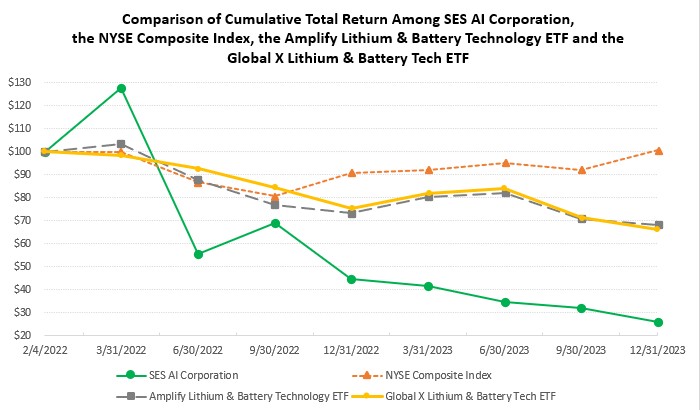There can be no assurance that we will be able to comply with all environmental laws and regulations at all times as the environmental legal regime is evolving and becoming more stringent, especially in China, South Korea, and the United States. Therefore, if these or other governments where we do business impose more stringent regulations in the future, we will have to incur additional substantial costs and expenses in order to comply with new regulations, which may negatively affect our results of operations. If we fail to comply with any of the present or future environmental regulations in any material aspect or cause any loss to any third parties due to our pollutant emission practices, improper handling of hazardous wastes or other environmental noncompliance, we may suffer from negative publicity and may be required to pay substantial fines, pay damages to such third parties, or suspend or even cease operations Failure to comply with environmental laws and regulations may materially and adversely affect our business, financial condition, operating results and prospects.
Failure to comply with certain health and production safety laws and regulations governing hazardous materials could materially adversely affect our business and results of operations.
In the sourcing of our products throughout the world, we process, store, dispose of and otherwise use large amounts of hazardous materials. As a result, we are subject to extensive and evolving health and production safety laws and regulations governing, among other things: the health of our employees and safety production requirements regarding the generation, handling, storage, use and transportation of hazardous materials. Compliance with these laws and regulations results in ongoing costs. Failure to comply with these laws or regulations, or to obtain or comply with the relevant permits, could result in fines, criminal charges or other sanctions by regulators. Furthermore, we may be ordered to rectify a noncompliance within a stipulated deadline; and if we fail to do so, we may be ordered to cease operations. Our ongoing compliance with health and safety laws, regulations and permits could require us to incur significant expenses, limit our ability to modify or expand our facilities or continue manufacturing and make other capital improvements. In addition, private parties, including current or former employees, could bring personal injury or other claims against us due to the presence of, or exposure to, hazardous substances used, stored or disposed of by us or contained in our products.
We are subject to U.S. and foreign anti-corruption, anti-bribery, anti-money laundering, financial and economic sanctions and similar laws and regulations. We can face criminal liability and other serious consequences for violations, which can harm our business.
We are subject to anti-corruption, anti-bribery, anti-money laundering, financial and economic sanctions and similar laws and regulations in various jurisdictions in which we conduct or in the future may conduct activities, including the U.S. Foreign Corrupt Practices Act (“FCPA”), the U.K. Bribery Act 2010, and other anti-corruption laws and regulations in countries in which we conduct activities. Anti-corruption laws prohibit us and our officers, directors, employees, contractors and business partners acting on our behalf, including agents, from corruptly offering, promising, authorizing or providing, directly or indirectly, anything of value to a “foreign official” for the purposes of influencing official decisions or obtaining or retaining business or otherwise obtaining favorable treatment. These laws also require companies to make and keep books, records and accounts that accurately reflect transactions and dispositions of assets and to maintain a system of adequate internal accounting controls. These laws also prohibit non-governmental “commercial” bribery and soliciting or accepting bribes. A violation of any of these laws or regulations could result in substantial civil and criminal fines and penalties, imprisonment, the loss of export or import privileges, debarment, tax reassessments, breach of contract and fraud litigation, reputational harm and other consequences and adversely affect our business, financial condition, operating results and reputation. Our policies and procedures designed to ensure compliance with these laws and regulations may not be sufficient and our directors, officers, employees, representatives, consultants, agents, and business partners could engage in improper conduct for which we may be held responsible.
As we increase our international cross-border business and expand our operations abroad, we may continue to engage with business partners, suppliers and third-party intermediaries to market our services and to obtain necessary permits, licenses and other regulatory approvals. In addition, we or our third-party intermediaries may have direct or indirect interactions with officials and employees of government agencies or state-owned or affiliated entities. We can be held liable for the corrupt or other illegal activities of these third-party intermediaries, our employees, representatives, contractors, partners and agents, even if we do not explicitly authorize such activities. There can be no assurance that our employees and agents will not take actions in violation of our policies and applicable law, for which we may be ultimately held responsible. As we increase our international business, our risks under these laws may increase.
Detecting, investigating and resolving actual or alleged violations of anti-corruption, anti-bribery, anti-money laundering or financial and economic sanctions laws can require a significant diversion of time, resources and attention from management. Non-compliance with these laws could subject us to whistleblower complaints, adverse media coverage, investigations, subpoenas received, enforcement actions, prosecution and severe fines, damages and administrative, civil and criminal sanctions, collateral consequences, remedial measures and legal expenses, all of which could materially and adversely affect our business, financial condition, operating results and reputation. In addition, changes in these laws in the future could adversely impact our business and investments in our securities.
